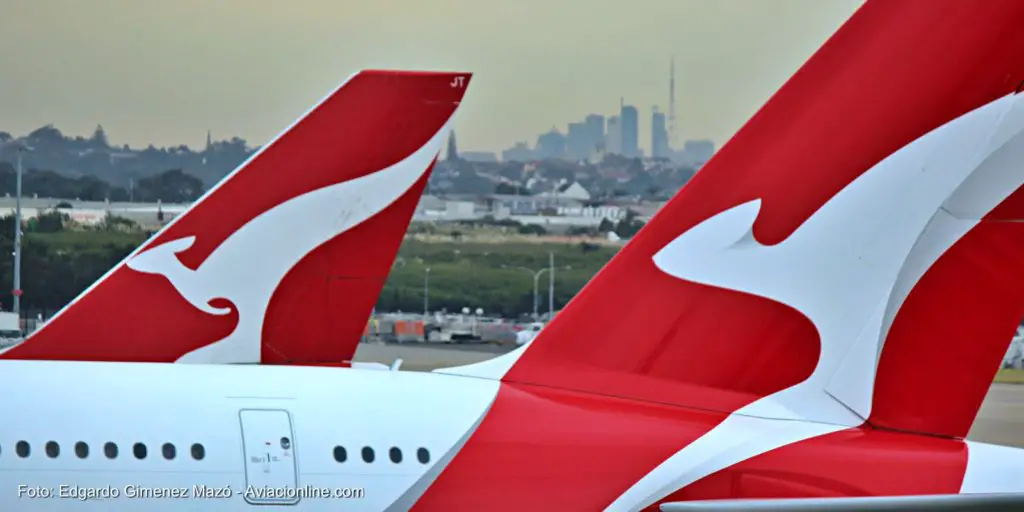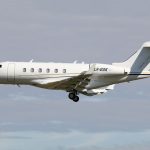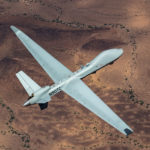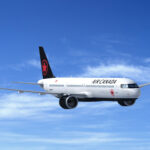- Data-driven collaboration with air traffic agencies helps airlines to burn less fuel, emit less carbon, and travel fewer miles
- Graphical depiction of what is going on at a single airport, or across the world, could result in changes in airspace design, pilot decisions
- Flight path designs, coupled with Airspace Insight, can further increase benefit
FARNBOROUGH, England–(BUSINESS WIRE)–GE Digital today announced Qantas has chosen to implement Airspace Insight™ as a tool designed to answer complex “what if” questions to improve airspace operations and identify opportunities to help drive more sustainable, efficient, and safe operations.
Airspace Insight is designed to help identify and quantify airspace inefficiencies to reduce overall flight time, fuel burn, and carbon emissions. It is estimated that a typical flight emits 900 to 1,000 kg of excess carbon per flight due to inefficient airspace design and air traffic control practices1. Airspace Insight is the first tool of its kind enabling a collaborative approach among the necessary stakeholders — Air Traffic Control (ATC), airlines, airports, airspace designers, and communities) to not only identify inefficiencies in an airspace, but also to recognize unnecessary flight paths over environmentally sensitive areas, helping reduce the impact of noise and pollution.
Airspace Insight is designed to better enable Qantas to understand what is happening in their airspace from a safety and efficiency perspective with more detail than they had access to before. This information enhances Qantas’ already industry-leading safety program with data they can use to collaborate with air traffic control organizations around the world. In addition, this data can ultimately help Qantas reduce carbon and other Greenhouse Gas (GHG) emissions while simultaneous decreasing aircraft noise footprints with optimal routing and more efficient climb and descent profiles.
Coupled with Navigation Services, Airspace Insight will support Qantas to continue their work in providing precision lateral and vertical guidance to every runway end. Expected benefits include eliminating circling, side-step, and non-precision procedures; providing lateral and vertical guidance to every runway end; promoting wind-aligned operations; accounting for non-normal and rare-normal conditions, reducing pilot and controller workload; providing guidance through complex terrain scenarios; and increasing track predictability. Passengers will also benefit from decreased flight times and reduced carbon emissions.
“The only way to get the kind of acceleration we need to hit our sustainability and efficiency goals is to put data to work,” said Andrew Coleman, General Manager of GE Digital’s Aviation Software business. “That data is already available in flight operations and in the flight itself. Innovators like Qantas are constantly looking to improve their flight experience for passengers and identify opportunities to drive change in their business and in the industry. We are honored to work with them toward those goals.”
Click on these links for more information about GE Digital’s Aviation Software portfolio and a GE Reports on how Qantas worked with GE Digital to develop FlightPulse®, an Electronic Flight Bag (EFB) application that puts key data into the hands of pilots.
About GE Digital
GE Digital transforms how our customers solve their toughest challenges by putting industrial data to work. Our mission is to bring simplicity, speed, and scale to digital transformation activities, with industrial software that delivers breakthrough business outcomes. GE Digital’s product portfolio – including grid optimization and analytics, asset and operations performance management, and manufacturing operations and automation – helps industrial companies in the utility, power generation, oil & gas, aviation, and manufacturing sectors change the way industry works. For more information, visit www.ge.com/digital.















